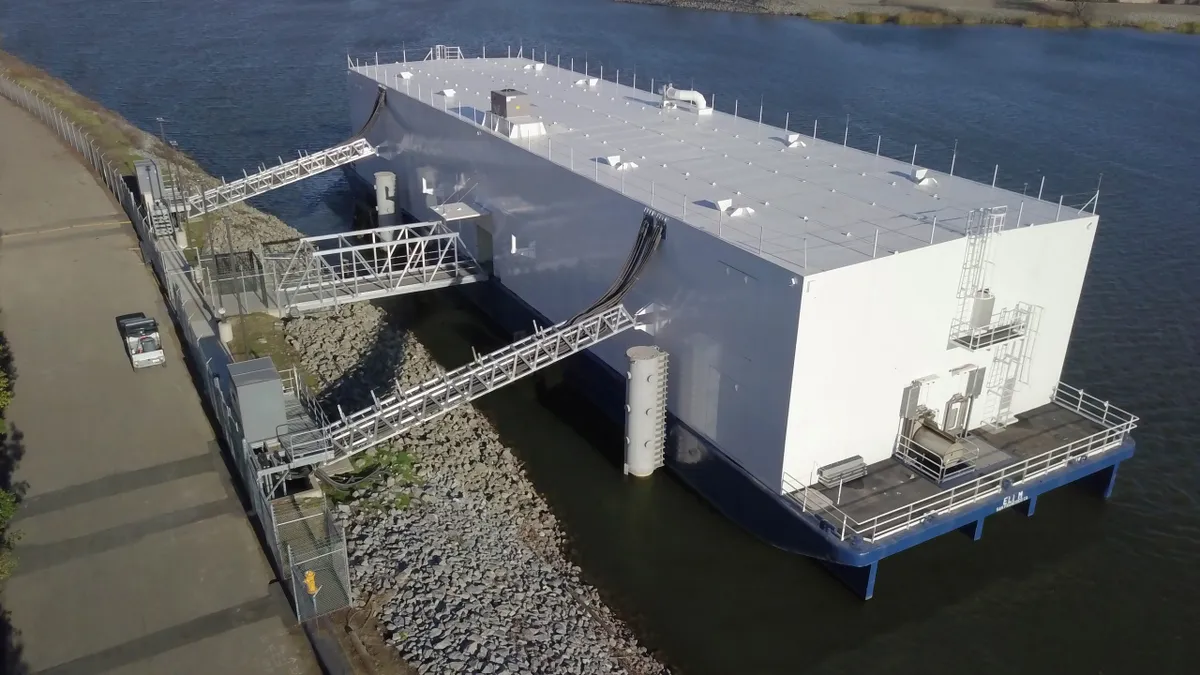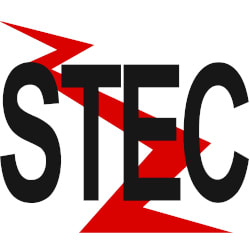Retail sales of electricity will decline in the residential sector this year, a macro trend that has utilities changing the way they do business and sell energy, while also fueling a wave of consolidation in the industry.
But on the commercial and industrial side, the U.S. Energy Information Administration predicts sales will rise – from 6.35 billion kWh/day in 2015 to 6.41 billion this year, and 6.48 billion kWh/d in 2017. It's a marginal uptick, but it represents an opportunity for companies capable of providing large-scale integrated solutions to a customer segment facing an increasingly complicated and competitive energy marketplace.
“Large C&I end users are increasingly looking to take more active management of and control of their energy bills and usage,” points out Andrew Mulherkar, Grid Edge analyst with GTM Research. But at the same time, “technology has reached a point where you can roll out not just one-off solutions but portfolios that meet the needs of specific end users.”
That portfolio-based approach opens up a growing opportunity for companies capable of bringing it all together. Most recently, Edison International, the parent company of regulated utility Southern California Edison, formed a consultancy to provide “energy as a service” to large customers.
Edison Energy, the new company, will partner with C&I consumers to direct their energy usage across the spectrum, from efficiency projects to the procurement of power contracts or development of on-site energy storage.
“We're focused on the largest users of electricity and natural gas, and our business model is to be an adviser and a systems integrator of whatever solutions are required to meet their objectives with energy,” Allan Schurr, President of Edison Energy, told Utility Dive in an interview at the Energy Thought Summit last month in Austin, Texas.
Through launched only last month, Edison Energy is already a major player in the space thanks to the combination of four companies providing energy consulting services. And it joins several other big names working in the space — including some electric utilities. Names like GE, Schneider, Constellation and Consolidated Edison have all formed similar ventures.
Helping companies keep up
Among the many changes to the industry, Schurr said two things have enabled a business like Edison Energy to come onto the scene. While the landscape of energy solutions has increased dramatically in complexity, so too have customers' energy goals.
“Most commonly what industrials want is cost reduction. Sometimes though, they want predictability of price. And they are willing to pay a premium if necessary, in order to have something that's more budgetable,” Schurr said. “Sometimes they want higher levels of resiliency at a local site that they can't get from grid power. Sometimes they want a more sustainable mix of energy than they can get from traditional supplies.”
“Any of those are what constitute their energy agenda, and our thesis is that most of these big corporates can't keep up with the dramatic change that's going on in the industry,” Schurr said.
That theory is borne out in research Edison did in developing its business model: The consultancy came onto the scene with a white paper titled "The New Energy Future – Challenges and Opportunities in Corporate Energy Management." Among the findings: a quarter of companies do not accurately understand their total energy spend, and 94% believe there are remaining opportunities for them to save.
“The number of technologies they have to consider, the business models that are out there, the policy changes that are occurring. That's a challenge for even the best operators in energy management,” Schurr said.
Companies' approaches have also changed when it comes to energy. And while consultancies like Edison's will benefit from the growing complexity, consumers are meeting them halfway. Looking back a decade, Schurr said energy management was a far more decentralized function for companies.
“Often it was hard to find an empowered decision maker at the largest companies,” he said.
But as soon as you introduce deregulation and commodity contracting, “it gets to be more complicated.”
“The plethora of technology options has really exploded in the last few years,” Schurr said. “The policies that are a reflection of what the politicians, and in fact the population wants, have created a patchwork of complexity for the biggest users to try and figure out. And there is pressure, coming from the top inside the companies, to up their sustainability game.”
“An energy manager can't just put his or her head down and just go do their job,” he said. “They now are part of a bigger sustainability program for which there may not be a budget to execute.”
Combined consultancies court C&I customers
Edison didn't start its consultancy from scratch. In 2013 it acquired SoCore Energy, a Chicago-based developer of solar projects for commercial and industrial customers. The company has installed solar projects in 17 states for customers including electric cooperatives, industrial consumers and large retailers. Its largest project is a 2.7 MW rooftop solar system in Maryland.
To SoCore, Edison added three more companies. “We have a great customer base. We're serving about a quarter of the Fortune 50 already,” Schurr said.
New Jersey-based ENERActive Solutions, another recently-acquired Edison venture, is a full-service energy consulting, engineering, and project development firm specializing in energy efficiency projects, building system optimization projects, and power generation. Clients include colleges, universities, K-12 schools, government, high tech/data centers, industrial sites, hospitals and health care facilities.
“Those are all very large users and each of them has a very different way of thinking about energy,” Schurr said. “But for none of them is it really core to their business.”
Ohio-based Delta Energy Services provides custom energy consulting services to large energy users, typically corporations with at least $1 billion in revenue. It focuses on energy procurement, energy data management, renewable energy integration and energy policy analysis.
And in Boston, Edison bought Altenex, which provides renewable energy advisory and procurement services featuring a proprietary market access platform. According to the company, that platform allows over 500 renewable energy developers with more than 4,500 wind, solar, biomass and hydro projects to compete for their clients’ business. The company said it typically facilitates long-term power purchase agreements for renewable energy on behalf of their large corporate clients.
“Large users. That's the common denominator,” Schurr said, of the customers the combined consultancy will court, including retail, manufacturing, data centers, office buildings and universities.
“Even companies that spend hundreds of millions a year, you would think that would be sufficient for them to staff a very large organization to manage energy. But they can't find the talent,” Schurr said. “They rely on others to advise then, and our value proposition is: 'We can help you end to end. Not just advise you, but help you go execute.'”
A crowded market
Edison is not the first into the space, but it represents a growing trend and the company's experience in the energy space could provide it a holistic boost, of sorts.
"The play here seems to an effort to become the advisor for a large C&I energy user at ever step of the value chain," said GTM's Mulherkar. That could include procurement, consulting, design, build, financing, or owning and operating. But he also cautioned that the market needs to keep an eye on the extent to which these services are really new, and "not just a rebranding of certain efforts they already have."
Earlier this year GE's energy consultancy Current announced a deal with JPMorgan Chase & Co. to install LED lighting across most of Chase’s U.S. branches. It represents "the world’s largest single-order LED installation to date," the company said.
Lighting replacement may sound like a simple project on some level, but the scope and expense means finance and implementation assistance can be necessary. GE said the project could reduce the branches’ lighting-related energy use by more than 50% – equal to taking nearly 27,000 cars off the road.
That's a "massive retrofit," said Mulherkar. "One that would require one of these large players with strong financial backing to actually carry out." But he also points out that while GE's strategy touts an integrated approach, "it's first major project is a pure retrofit."
Other utility holding companies have developed energy consultancies as well. ConEdison Solutions, a subsidiary of Consolidated Edison, bills itself as an energy service company providing competitive power, renewable energy and sustainability solutions to a range of customers including C&I and government.
Duke Energy offers its Commercial Portfolio, which develops and operates wind and solar projects for customers. Vectren's Small Business Energy Solutions partners with efficiency installers in the small commercial space.
Across the power sector, companies are moving in to help businesses take control of their energy.
"The thing that's happening in the electric industry, and it happens in a lot of industries, is that the transition is messy," said Edison Energy's Schurr. "From something they thought was fairly certain, to something that is going to be very different in the future. It takes time. It takes time in every industry."
Editor Gavin Bade contributed reporting.
Correction: An earlier version of this post identified Schurr as the CEO of Edison Energy. He is its president.

















